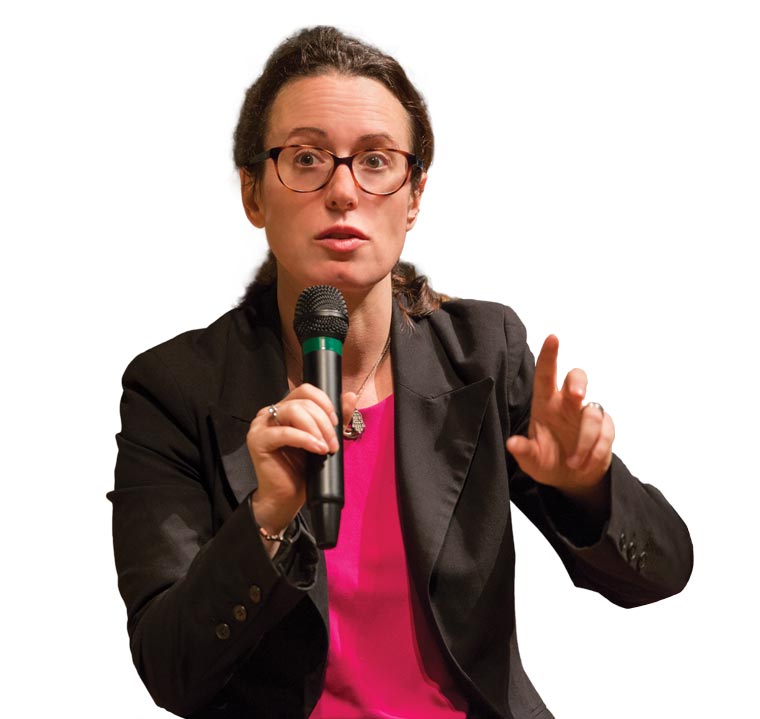
New York Times White House correspondent and CNN political analyst Maggie Haberman ’96 has a confession to make: “I had, and have, a bit of a procrastination problem.” When she submitted “a particularly late paper” as an undergraduate, Cameron Afzal (religion) told her he was afraid she was going to get into the “real world” and not know how to meet a deadline.
Fast-forward a couple of decades, and Haberman’s name has become synonymous with timely—and incisive—news reporting and analysis, particularly related to Donald Trump.
In June, during Reunion 2018, Haberman talked with President Cristle Collins Judd at an event culminating the College’s yearlong series on democracy and education. Not surprisingly, Haberman’s insights can be taken to heart regardless of who’s in the White House.
Democracy & Education
The most fundamental thing … schools can do right now is educate people [about how] democracy actually works, the limits of what a government body can do. Also, news literacy is vital. … [Schools can] teach people how to be better participants and consumers. … Go deeper. Every single time, go deeper.
Perceptions & Expectations
This is going to sound like a negative story, but it’s not. I wrote a short story [junior year] … and I remember I was really proud of it—and I remember it was pretty roundly mocked by the other students in the class. ... It was an important lesson that how you view something is not always going to be how it’s received.
History & Speed
We are all moving so fast, just chasing the ball down the court, that we’re not stopping to look at the big picture. … What’s frustrating to me is my fear that we’re not capturing history properly.
Local & National
Media is booming right now, and that is good. … I really don’t think print media will ever be “dead.” The “death” that concerns me is … local media, and that I don’t have a great answer for, and that scares me a lot. When you look at corruption flourishing in statehouses, the death of local print outlets is a huge problem.
Exposure & Understanding
The cloistered nature of how people—particularly on elite campuses—go about life, and then enter life after college, is a problem. … So the most important thing … to educate people [about is], frankly, what the rest of the country is like. … People are not necessarily operating in bad faith, just because they don’t agree with you.
Instincts & Trust
I’m very grateful to have [attended college] at a place that values … helping you to find your own voice—and to trust the voice in your head that is telling you something based on an instinct. … That is priceless.
Power & Curiosity
I fell in love with the energy and pace of the New York Post newsroom in the 1990s. … It fundamentally focuses on power, and I think that’s part of what drew me to [this work]—trying to understand power and how it’s corrupted and abused. And that’s part of what keeps me in [journalism].
Activism & Patience
I think the only answer is: Continue to act. ... Just keep doing it. It’s not like there’s going to be some magic [solution]. … People are going to have to realize that this is going to be a very long process.
Excerpted and Condensed by April Greene
Photo by Quyen Nguyen